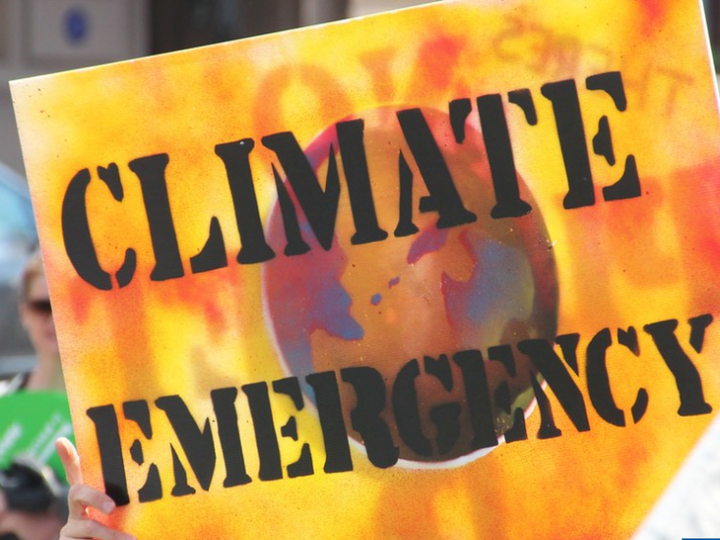by Mauro Ferrari*
-Climate change dominated the agenda at Davos.
-Science will be key to finding solutions for a sustainable world.
-From understanding ice melt to building bird-like drones to monitor pollution, innovations are helping us tackle the emergency.
After my first time at the World Economic Forum’s annual meeting in Davos, it is worth taking a look back. Under the theme of Stakeholders for a Cohesive and Sustainable World, what emerged as an overarching topic in the discussions across the board was the enormous challenge that climate change poses to global society and humanity itself. The question on everyone’s lips is - how do we build a more sustainable world?
The annual meeting was also an occasion to show Europe’s commitment as a front-runner in the response to climate change.
Europe will do what it takes to unlock the investment, innovation and the creativity that is needed for the green transition, as European Commission President Ursula von der Leyen put it. This push is reflected in the new Commission’s Green Deal; the most comprehensive response to the climate emergency the world has seen so far. This aims to achieve carbon neutrality for the EU by 2050. It shows Europe’s clear ambition, and puts research and innovation as key drivers to achieve this goal.
Science and the SDGs
It was striking to see how often science was referred to in the Davos debates as proof that it is indeed a climate emergency that the world is facing. The evidence is clear and does not bode well for the future. But let us not forget that science does not only offer stark warnings. It can also come up with many of the answers we so acutely need, as well as solutions to change our ways of living and operating. Breakthrough research is critical to tackling climate change collectively and to stepping up our efforts to meet the UN Sustainable Development Goals (SDGs). I see the situation as an opportunity for a wide array of fields.
So should we ask scientists to work specifically on climate solutions? The colossal and multifaceted challenges that climate change brings cannot just be solved by direct, short-term research alone. They need a broad, multi-disciplinary and open approach that takes the long view. A proven recipe for success is giving the brightest minds free rein to follow their scientific curiosity, pushing into unknown fields of knowledge, where solutions to many challenges we face may lie.
History tells us that this non-prescriptive mode brings about many of the greatest and often unexpected breakthroughs, as European Commissioner Mariya Gabriel and I emphasised in a Davos session.
Blue sky for a Green Deal
This approach is at the backbone of the European Research Council (ERC)’s way of operating. Our ‘blue sky’ research, which was already funded in a bottom-up fashion, now also feeds into the policy priority of the Green Deal. This is thanks to the foresight of researchers who cut new ground even before we knew of the challenges ahead, regardless of the political agenda of the time.
We have backed over 9,000 top researchers so far to push our frontiers in all fields. Roughly €850 million have already been put into research that is in some way related to the climate sphere, such as atmospheric science, oceanography and demography. Many more projects are likely to have implications for climate change - from maths to computer science, from chemistry to engineering, from economy to history, and from genetics to the study of infectious diseases. Together they can help us address the broad range of fields that the SDGs cover.
The annual meeting again provided a valuable platform where top scientists contributed to the debates, including ERC grantee Johan Rockstrom, a renowned expert on global sustainability issues. His research on tipping points, regarding the growing threat of abrupt and irreversible climate change in our planet’s life systems, is pioneering. His work provides hope and direction to steer towards a prosperous and resilient, zero-carbon future.
The interdisciplinary nature of ERC projects means that they are relevant across a wide range of climate-related fields. One powerful example of research that has provided crucial new knowledge on the eco-systems of our deep seas and polar regions is helping to understand the process of how polar ice caps melt. Another project is improving the agility and robustness of bird-like, small-scale unmanned air vehicles that are already enabling climate forecasting and surveillance of for instance wild fires and pollution.
Yet another pioneering project is creating a water recycling solution that uses membranes inspired by nature itself to tackle the issues of drought and seawater desalination, with a prototype being developed to provide the proof of concept for potential partners or investors. Holding promise for more inclusive and equitable societies, a new study on benefit-sharing is giving insight into how international law can be used for fair partnerships between the global North and South, with a view to transitioning to a green economy. These are just a few of countless examples that offer new knowledge and concrete solutions in the face of the climate emergency, and in some cases bring new business opportunities.
For ‘blue sky’ research to be able to continue to play a critical role it is not enough just to believe in the evidence and solutions it provides, even if that’s a good start. We must also be ready to invest in it. That is what the EU intends to do under the next framework programme Horizon Europe from 2021. It will pay off.
A clear take-away from this year’s Davos is that the climate emergency is on everyone’s minds, with the enormity of the challenge ahead of us laid bare. Radically new technologies, and disruptive research and innovation are needed to fuel the societal, economic and ecological transitions the future demands. The breakthroughs prompted by exploratory research lead to solutions that improve our daily lives. Research is at the service of the community, as the output of science is a common good with a global reach. This can assist us on the path towards global justice, benefitting humanity as a whole.
*President, European Research Council
**first published in: www.weforum.org




 By: N. Peter Kramer
By: N. Peter Kramer
